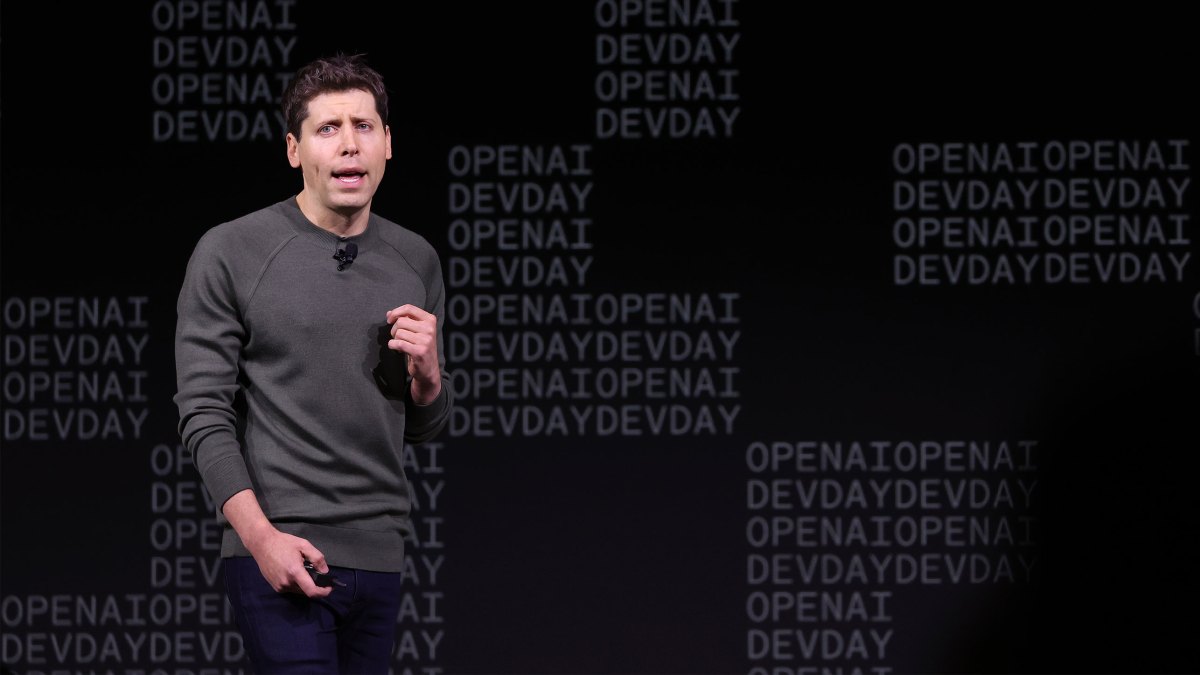ChatGPT maker OpenAI has closed the largest VC round of all time.
The startup today announced that it raised $6.6 billion in a funding round that values OpenAI at $157 billion post-money. Led by previous investor Thrive Capital, the new cash brings OpenAI’s total raised to $17.9 billion, per Crunchbase.
Microsoft, Nvidia, SoftBank, Khosla Ventures, Altimeter Capital, Fidelity, and MGX also participated.
“The new funding will allow us to double down on our leadership in frontier AI research, increase compute capacity, and continue building tools that help people solve hard problems,” the company wrote in a blog post. “We’re grateful to our investors for their trust in us, and we look forward to working with our partners, developers, and the broader community to shape an AI-powered ecosystem and future that benefits everyone.”
There may be unusual strings attached. This morning, the Financial Times reported that OpenAI asked investors to avoid backing rival startups such as Anthropic and xAI. We’ve reached out to the company for more information and will update this post when we hear back.
OpenAI was already the world’s best-funded AI startup. But the mammoth new tranche puts the San Francisco company in a category all its own.
Elon Musk’s AI venture, the aforementioned xAI, raised over $6 billion earlier this year, but at a valuation dwarfed by OpenAI’s ($24 billion post-money). Chief OpenAI rival Anthropic has secured just over half OpenAI’s total ($9.7 billion) since its founding, while high-profile AI ventures Cohere and Mistral’s capital war chests are hovering around $1 billion.
So why did OpenAI need to raise more cash than the government of Zimbabwe spent in 2021? Well, quite simply, to sustain its sprawling operations. OpenAI is reportedly burning through billions training and productizing its AI systems — systems like the recently debuted o1 — and recruiting coveted data science talent to stay apace with the competition.
According to The Information, OpenAI has spent roughly $7 billion on model training and $1.5 billion on staffing. (OpenAI CEO Sam Altman has said that one of the company’s older leading models, GPT-4, cost more than $100 million to train.) And at one point in time, ChatGPT alone was said to be costing OpenAI $700,000 a day to run.
OpenAI is far and away the market leader in generative AI. ChatGPT has more than 250 million weekly active users (around 10 million of which are paying subscribers), and OpenAI’s annualized revenue has reportedly eclipsed $3.4 billion. ChatGPT alone could bring in $2.7 billion this year, The New York Times reports, citing internal OpenAI docs.
Microsoft, OpenAI’s close partner and investor (it’s put in over $13 billion), has built an entire suite of productivity products on top of OpenAI models. And Apple is integrating ChatGPT with its Apple Intelligence collection of AI tech.
OpenAI optimistically projects its revenue will reach $100 billion in 2029 — matching the current annual sales of Nestlé. But it faces competition on many fronts.
Startups like Runway and Luma Labs have beat OpenAI to market with high-fidelity video generation models. (OpenAI’s own video model, Sora, is expected to launch sometime this fall.) Anthropic continues to build out an AI product suite to rival ChatGPT. xAI, Google and Amazon are investing heavily in infrastructure to train powerful next-generation models, and Meta — along with upstarts such as Black Forest Labs — continue to release open models on their quest to commoditize text- and image-generating AI.
The competitive pressures are such that OpenAI may steeply increase the price of its premium ChatGPT plan, ChatGPT Plus, from $20 per month to $44 per month by 2029 — and revamp its corporate structure to attract additional investments.
The for-profit division of OpenAI is currently governed by a nonprofit that caps investors’ returns. But Altman is said to have signaled that OpenAI will move away from nonprofit governance in the next few months. Reuters reported earlier that the close of the $6.6 billion round was contingent on this, in fact — and Altman possibly receiving equity.
According to Bloomberg, investors in the new round will be able to claw back their cash if OpenAI doesn’t complete the conversion from nonprofit to for-profit within two years.
Unfettering its ability to raise could give OpenAI greater freedom to explore capital-intensive, longer-term bets, like AI chips — and entire datacenters — to lessen its reliance on Nvidia. (Nvidia makes the hardware on which OpenAI trains and runs many of its models.) It’ll also refill the company’s coffers to ink licensing agreements with data providers such as Reddit and Condé Nast — agreements that could give OpenAI a competitive edge while at the same time shielding it from IP lawsuits.
Whether it’ll be able to execute is another question. OpenAI’s been shedding high-profile execs in recent weeks, the culmination of disagreements over the company’s direction.
CTO Mira Murati, chief research officer Bob McGrew, and research VP Barret Zoph announced their resignations in late September. Prominent research scientist Andrej Karpathy left OpenAI in February, Sutskever and former safety leader Jan Leike announced their departures in May, and co-founder John Schulman said last month that he was leaving to join rival Anthropic. Meanwhile, Greg Brockman, OpenAI’s president, is on extended leave through the end of the year.
Of the 13 people who helped found OpenAI in 2015, only three remain.

